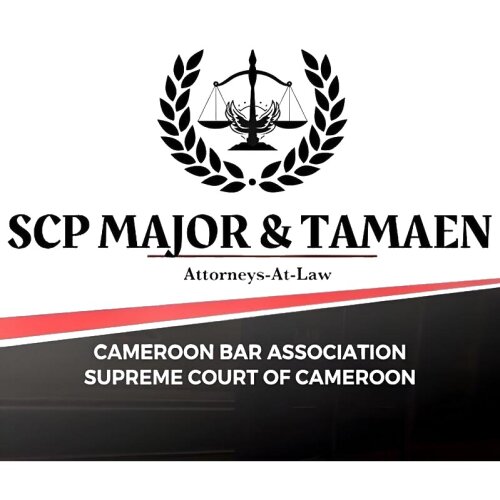Best ESG Advisory & Compliance Lawyers in Cameroon
Share your needs with us, get contacted by law firms.
Free. Takes 2 min.
Or refine your search by selecting a city:
List of the best lawyers in Cameroon
Legal guides written by CHI & Partners Law Firm:
- Ship Registration in Cameroon
About ESG Advisory & Compliance Law in Cameroon
Environmental, Social, and Governance (ESG) Advisory & Compliance refers to the legal frameworks, best practices, and standards that help organizations in Cameroon operate responsibly and sustainably. The ESG landscape combines environmental protection, social responsibility, and sound governance structures. In Cameroon, there is growing recognition of the importance of ESG issues in sectors such as mining, agriculture, banking, energy, and manufacturing, driven by both international and national legal requirements. Regulatory authorities, stakeholders, and investors are increasingly seeking transparent, ethical, and sustainable practices from businesses. Effective ESG compliance helps organizations manage risks, enhance reputation, and attract investment while supporting long-term sustainable development goals in the country.
Why You May Need a Lawyer
Navigating ESG Advisory & Compliance can be complex, so legal assistance is often required in several situations. You may need a lawyer if your business is setting up an ESG strategy or policy, facing regulatory inspections or audits, or seeking to obtain environmental permits and licenses. Lawyers are also indispensable for organizations responding to complaints or investigations about environmental harm, labor rights violations, or unethical governance practices. If you are participating in projects requiring Environmental and Social Impact Assessments (ESIA) or are faced with contractual disputes related to ESG performance, a lawyer's guidance is crucial. Complying with reporting obligations and integrating international ESG standards with local laws also typically requires specialized legal support.
Local Laws Overview
In Cameroon, ESG Advisory & Compliance is shaped by a mix of national legislation, regional regulations, and international commitments. Key national laws addressing ESG concerns include the Environmental Management Law, Labor Code, Mining Code, Forestry and Wildlife Law, and various decrees on corporate governance and anti-corruption. The Ministry of Environment, Protection of Nature and Sustainable Development oversees environmental regulations, while the Ministry of Labor and Social Security handles labor standards. Cameroon is also a signatory to international agreements such as the Paris Agreement on climate change and adheres to standards set by the Extractive Industries Transparency Initiative (EITI). ESG compliance often requires businesses to conduct Environmental and Social Impact Assessments, adopt anti-money laundering practices, and publicly report on sustainability initiatives.
Frequently Asked Questions
What does ESG mean in the Cameroonian business context?
ESG stands for Environmental, Social, and Governance. In Cameroon, it refers to policies and practices businesses adopt to protect the environment, respect social rights and labor standards, and ensure ethical management and transparency.
Are companies in Cameroon legally required to comply with ESG standards?
While some ESG elements are mandatory under national laws, others are encouraged by international best practices and voluntary standards. Compliance is increasingly expected by investors and regulators, especially in sensitive sectors like mining and forestry.
Who enforces ESG-related laws in Cameroon?
The Ministry of Environment, Protection of Nature and Sustainable Development enforces environmental regulations, while the Ministry of Labor and Social Security oversees social and labor issues. Other agencies and courts may be involved depending on the specific aspect of ESG under review.
What are the main ESG reporting obligations for businesses?
Certain sectors, such as extractives, must publish environmental and social impact assessments and annual reports that address ESG performance. Reporting requirements may also be stipulated in investment agreements or as part of public listing obligations.
What is an Environmental and Social Impact Assessment (ESIA)?
An ESIA is a legal requirement for specified projects in Cameroon. It assesses the potential effects of projects on the environment and local communities, and it must be approved before project commencement.
Can non-compliance with ESG laws result in penalties?
Yes, non-compliance can lead to administrative fines, suspension of licenses, closure of operations, or even criminal charges depending on the gravity of the offense.
Are international ESG standards applicable in Cameroon?
Many companies in Cameroon voluntarily adopt international ESG standards, especially when dealing with foreign partners or investors. These standards often complement national legal requirements.
How can small and medium enterprises (SMEs) approach ESG compliance?
SMEs can start by identifying relevant ESG risks in their operations, implementing basic policies for environmental stewardship and labor practices, and seeking legal advice for sector-specific obligations.
Is community consultation required for development projects?
Yes, community consultation is a key element of ESIA processes and is necessary before launching projects that impact local populations and the environment.
How does ESG compliance benefit businesses in Cameroon?
Beyond legal compliance, effective ESG practices can enhance brand reputation, reduce operational risks, improve investor confidence, and facilitate access to new markets and financing opportunities.
Additional Resources
Several resources and organizations are available to help you understand and comply with ESG requirements in Cameroon:
- Ministry of Environment, Protection of Nature and Sustainable Development
- Ministry of Labor and Social Security
- Cameroon Bar Association
- Chamber of Commerce, Industry, Mines and Crafts of Cameroon
- Extractive Industries Transparency Initiative (EITI) Cameroon Office
- Local and international law firms specializing in ESG compliance
- Environmental Protection NGOs operating in Cameroon
- Public regulatory agencies in specific sectors like forestry or mining
Next Steps
If you need legal assistance regarding ESG Advisory & Compliance in Cameroon, it is important to:
- Document your specific situation, including any regulatory notices, contracts, or communications received
- Identify your immediate obligations and deadlines to avoid penalties
- Contact a qualified Cameroonian lawyer or law firm experienced in ESG matters
- Prepare to cooperate with any governmental investigations or audits by organizing relevant documentation
- Consider seeking advice from industry associations or professional bodies for sector-specific guidance
- Stay informed about updates to national laws and international standards relevant to ESG
Taking these steps can help you meet legal requirements, manage risks effectively, and build a responsible, sustainable business in Cameroon.
Lawzana helps you find the best lawyers and law firms in Cameroon through a curated and pre-screened list of qualified legal professionals. Our platform offers rankings and detailed profiles of attorneys and law firms, allowing you to compare based on practice areas, including ESG Advisory & Compliance, experience, and client feedback.
Each profile includes a description of the firm's areas of practice, client reviews, team members and partners, year of establishment, spoken languages, office locations, contact information, social media presence, and any published articles or resources. Most firms on our platform speak English and are experienced in both local and international legal matters.
Get a quote from top-rated law firms in Cameroon — quickly, securely, and without unnecessary hassle.
Disclaimer:
The information provided on this page is for general informational purposes only and does not constitute legal advice. While we strive to ensure the accuracy and relevance of the content, legal information may change over time, and interpretations of the law can vary. You should always consult with a qualified legal professional for advice specific to your situation.
We disclaim all liability for actions taken or not taken based on the content of this page. If you believe any information is incorrect or outdated, please contact us, and we will review and update it where appropriate.
Browse esg advisory & compliance law firms by city in Cameroon
Refine your search by selecting a city.

















